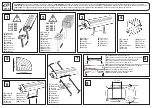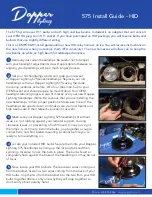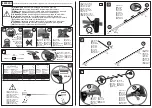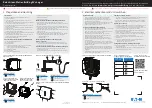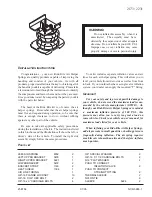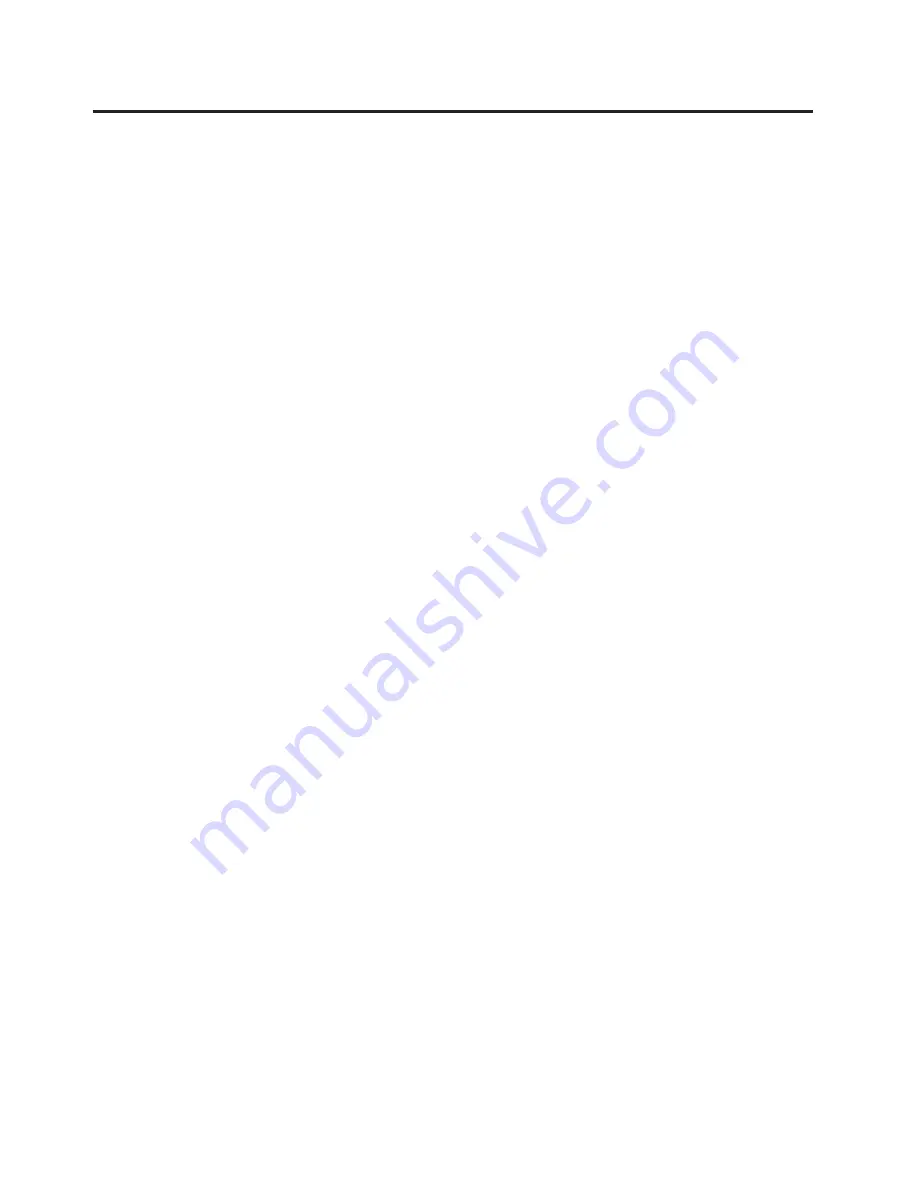
1–2 GENERAL INFORMATION
1. GENERAL INSTRUCTION
This publication is designed to help you the body repair
technician with your specialized work. Vehicle bodywork
has changed a great deal over the years. As vehicles
have developed technically, vehicle bodywork has also
had to meet new requirements with design, changes to
reconcile apparently conflicting demands to name just
a few examples:
•
strength and safety
;
low weight
•
spaciousness
;
good aerodynamics
•
high quality
;
low price
The durability and ease of repair of the bodywork also
plays an important part.
Nowadays, the use of highly automated production
equipment makes it possible to maintain the tightest
tolerances and thus ensure a high level of quality.
When bodywork is damaged, the customer rightly ex-
pects it to be expertly repaired to the same quality stan-
dards.
At the same time, for his safety, the customer expects
you to have comprehensive knowledge of materials,
measuring and straightening methods, possible distor-
tion, optimum corrosion prevention and much more
besides.
This publication is designed to help you update your
knowledge and give you an idea of what you require to
rectify moderate or severe accident damage, for your
own safety and for the satisfaction of your customers.
2. IMPORTANT SAFETY NOTICE
2-1. BEFORE BEGINNING WORK
•
Disconnect the battery to reduce the possibility of
fire caused by electrical shorts.
•
Check for fuel leaks and repair as necessary.
•
Remove the fuel tank and/or fuel lines if welding
equipment is to be used near the fuel system.
•
Before welding, sanding or cutting, protect carpets
and seats with fire-proof covers.
•
Follow standard safety practices when using toxic
or flammable liquids.
•
Use standard safety equipment when spraying paint,
welding, cutting, sanding or grinding. Standard safety
equipment includes.
•
Respirator and filter masks: Designed to filter out
toxic fumes, mist, dust or other airborn particles. Use
a respirator or filter mask designed to protect you
from the hazards of the particular job; some respira-
tors, for example, are designed to filter out only dust
and airborn particles, not toxic fumes.
•
Safety goggles or glasses: Designed to protect your
eyes from projectiles, dust particles or splashing liq-
uid.
•
Gloves: Rubber gloves protect against corrosive
chemicals. Welding gloves protect against burns and
abrasions caused by welding, sanding or grinding.
•
Safety shoes: Non-slip soles protect against slipping.
Metal toe inserts protect against falling objects.
•
Ear plugs: Protect eardrums from harmful noise lev-
els.
2-2. DURING WORK
•
Do not smoke while working near the fuel system.
•
Deposit gas or solvent-soaked shop towels in an
approved container.
•
Brake lining contains asbestos, which can cause
cancer. Do not use an air hose to blow off brake
assemblies: use only an approved vacuum cleaner,
and wear an approved filter mask or respirator.
•
Always attach a safety cable when using a hydrau-
lic ram or a frame straightening table: do not stand
in direct line with the chains used on such equip-
ment.
Summary of Contents for TACUMA
Page 1: ...BODY REPAIR MANUAL TACUMA ...
Page 9: ...GENERAL INFORMATION 1 5 BLANK ...
Page 10: ...1 6 GENERAL INFORMATION Fig 3 9 TECHNICAL ILLUSTRATION ...
Page 12: ...1 8 GENERAL INFORMATION Fig 4 ...
Page 14: ...1 10 GENERAL INFORMATION Fig 5 ...
Page 16: ...1 12 GENERAL INFORMATION Fig 6 ...
Page 89: ...BODY DIMENSION 8 3 Fig 2 1 1 UNDER BODY ...
Page 90: ...8 4 BODY DIMENSION Fig 3 1 2 FRONT FRAME ...
Page 91: ...BODY DIMENSION 8 5 Fig 4 1 3 REAR FRAME ...
Page 92: ...8 6 BODY DIMENSION Fig 5 1 4 FRONT PANEL ...
Page 93: ...BODY DIMENSION 8 7 Fig 6 1 5 ENGINE ROOM ...
Page 94: ...8 8 BODY DIMENSION Fig 7 ENGINE ROOM Continued ...
Page 95: ...BODY DIMENSION 8 9 Fig 8 ENGINE ROOM Continued ...
Page 96: ...8 10 BODY DIMENSION Fig 9 1 6 SIDE OUTER ...
Page 97: ...BODY DIMENSION 8 11 Fig 10 2 BODY WELDING DIAGRAM 2 1 FRONT PANEL UPPER ...
Page 98: ...8 12 BODY DIMENSION Fig 11 2 2 FRONT WHEEL HOUSE ...
Page 100: ...8 14 BODY DIMENSION Fig 13 2 4 DASH PANEL UPPER ...
Page 102: ...8 16 BODY DIMENSION Fig 15 DASH PANEL LOWER Continued 1 2 2 4 5 2 2 1 Arc welding Arc welding ...
Page 103: ...BODY DIMENSION 8 17 Fig 16 2 6 ROOF ...
Page 104: ...8 18 BODY DIMENSION Fig 17 2 7 BODY SIDE AND WHEEL HOUSE INNER ...
Page 105: ...BODY DIMENSION 8 19 Fig 18 2 8 REAR FRAME ...
Page 106: ...8 20 BODY DIMENSION Fig 19 2 9 TAIL GATE ...
Page 112: ...9 4 SEALING CAULKING AND DEADNER ENGINE ROOM Continued Fig 3 C A B VIEW B VIEW A VIEW C ...
Page 113: ...SEALING CAULKING AND DEADNER 9 5 ROOF Fig 4 A A RUB AFTER SEALING SECT A A ...
Page 114: ...9 6 SEALING CAULKING AND DEADNER INSIDE ROOM Fig 5 B C C A A B SECT A A SECT B B SECT C C ...
Page 116: ...9 8 SEALING CAULKING AND DEADNER HOOD Fig 7 A A A SECT A A RUB AFTER SEALING VIEW A ...
Page 119: ...SEALING CAULKING AND DEADNER 9 11 Fig 10 1 2 CAULKING ENGINE ROOM ...
Page 120: ...9 12 SEALING CAULKING AND DEADNER UNDER BODY Fig 11 ...
Page 121: ...SEALING CAULKING AND DEADNER 9 13 BACK PANEL Fig 12 ...
Page 124: ...9 16 SEALING CAULKING AND DEADNER Fig 16 UNDER BODY ...
Page 125: ...SEALING CAULKING AND DEADNER 9 17 ROOF DOOR Fig 17 ...






















